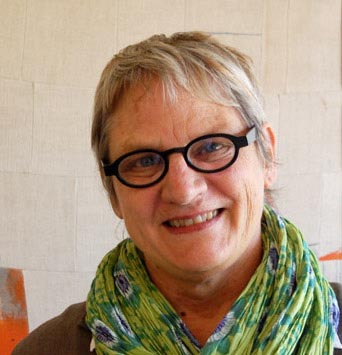Faculty Impact: Elevating diverse voices with information science
 Foundational to creating healthy and vibrant communities – in the city or the classroom – is ensuring that everyone feels invested and heard, appreciated, and celebrated. Success depends on each of us recognizing our own biases and prejudices and our privilege and power.
Foundational to creating healthy and vibrant communities – in the city or the classroom – is ensuring that everyone feels invested and heard, appreciated, and celebrated. Success depends on each of us recognizing our own biases and prejudices and our privilege and power.
I bring that same commitment and sense of responsibility to my work as a teacher and scholar in the School of Information Sciences at Wayne State. At first glance, the environment of a public university may seem quite different from grassroots, community-based work; however, I would argue that their vision and mission share essential values – diversity, inclusion, opportunity, and equity – which together contribute to a more just society.
My commitment to valuing and elevating the voices, experiences, and contributions of people who are not like me began in childhood and has carried through my life in work, school, scholarship, and service. As a child of parents from immigrant families, I was keenly aware of difference and prejudice. I have too often witnessed the ways race, class, age, ethnicity, gender, physical or intellectual ability, and sexuality are used to divide us. Diversity and inclusion are not abstract concepts but guiding principles intimately tied to empathy, compassion, and social and economic justice for me.
I spent my professional life before joining the faculty at Wayne State working with and for marginalized communities. In Chicago’s grantmaking community, I was an early advocate for funding LGBTQ+ community-based groups. I worked at a progressive public foundation in Chicago that supported community-based activist groups and helped foster and sustain collaborations across issues, identities, and community borders.
Historically, public universities like Wayne State have been important resources for poor and working people in this country. The educational opportunities they offer contribute to social and economic mobility in ways that cannot be overstated.
Yet, at the same time, the university is an institution of power. For many first-generation college students, students of color, women, queer students, and others from disenfranchised communities, it is an environment that can take time and effort to make sense of and negotiate effectively. One of my responsibilities as a teacher and mentor is to help facilitate that journey.
Library and Information Science (LIS) as a discipline and librarianship as a practice have long histories of struggling with institutional and individual power and privilege. Diversity and inclusion are core values of our professional organizations. The records of the American Library Association and the literature of our profession attest to that long struggle. History also shows how public libraries have struggled to serve the needs of diverse users. Today that conversation has reached another level, and LIS professionals are again employing creative and popular tools to increase access to information.
I make a point of including resources and readings that capture a range of voices, experiences, and ideas in my courses. I emphasize critical thinking skills and research methods designed to help students understand how we got where we are and challenge them to see themselves in new and larger contexts. In the Community Archives course to be offered in Winter 2022, I introduce students to community-based archives projects and challenge them to find examples of similar projects (or a need for some) in their own communities. We read traditional and alternative archival theory and turn a critical eye to each based on what we learn about community archives practice. We look at the histories of communities and the ways archival resources are used to write and tell history. Students come away with an awareness of the silences and gaps in those stories and an appreciation for their responsibilities to be better stewards of community stories and records.
Readings and resources are not enough when working with students or communities. We need to not just see or hear ourselves reflected in materials but also to know that there is space for our voices to be heard. I work hard to ensure that my classrooms – online or on-campus – are places where we all understand that we are there to learn with and from each other. It is one of their first steps as professionals-in-training toward building a community of practice based on mutual respect and fueled by the power of our diverse experiences. I seek to create space in the classroom that makes speaking and listening possible and encourage critical and respectful engagement with new and different ideas. While my job is to teach, I remind myself that to do it effectively, I have to listen and learn from my students, colleagues, and communities.
My scholarship as a historian of systems of information examines historical perceptions, expectations, and implementations of institutions as information environments acting in the public interest. Critical historical scholarship should contribute to our understanding of the past, stimulate new questions, offer insight and evidence for how we got to where we are today, and help us identify more fair and just paths for the future.
What better place to do that today than in Detroit? I cannot imagine a better environment in which to prepare students to be leaders in the information professions and particularly public institutions like libraries and archives.
Submitted by:
Christine D’Arpa
School of Information Sciences
cl0091@wayne.edu
webpage: https://sis.wayne.edu/profile/cl0091